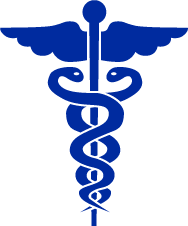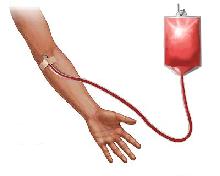What is free time? For most of the past seven years, it has been a concept completely foreign to me. Every minute not spent as a slave to medical school or residency seemed to be consumed with every other responsibility I had been forced to set aside: husband, father, church member, neighbor, citizen. Even vacation was not really "free time," as I oxymoronically felt obligated to maximally recreate and forcibly relax for an allotted time, until the realities of life encroached upon me again. And in every nook and cranny of every conceivably "free" moment, there was always the pressure of impending or deferred commitments, unaffectionately referred to as the loathsome "longitudinal curriculum."
I have not suddenly, entirely burst out of that oppressive cavern. But now, I have found myself with hours, even days, WITH NOTHING TO DO. Days where nothing is due or overdue or soon-to-be overdue. Hours where the kids are in bed, the house is clean, and I find myself wondering, "Well, what should I do now?"
My answer so far has been varied. I've read books and poetry. I played way too much Weboggle. I've gotten mesmerized by the computer mystery game, Riven. I've posted lame entries on my blog. I've watched football games, played flag football, exercised. I've gotten captivated, frustrated, and re-captivated by "Lost." I've done yardwork, gone hiking, played with my kids, planned with Elizabeth.
Fun stuff, all. A lot of it, however, is a complete waste of time. Now, I don't believe that wasting time is always a bad thing; a certain amount of brain-disengaging activity can be relaxing, and even healthy. (Re: Weboggle). But as these free minutes and hours and days and weeks and months pile up, what will be the sum result of all of my "free time?"
Deep inside me, I have long had some big-time goals: writing a Steinbeckian novel, becoming a rugged mountain explorer, making a difference in politics, investing wisely and expertly, serving whole-heartedly in the church.
Is this what free time is, the moments given to us to expand, give voice to and flesh out our deepest desires? I would guess that only a small percentage of history's great one's arrived there through sheer innate genius, like Mozart. The rest arrived there through the diligent application of above-avergage gifts, like Lincoln or Edison.
I've begun reading a biography of Teddy Roosevelt, a truly remarkable American. He was blessed with ordinary gifts but extraordinary courage, resolve and ambition. He pushed himself, forced himself, towards greatness in politics and life.
Do we all have the seed of greatness within us? If so, do we nourish it, water it, cultivate it in our free time?
Or do we sit back and play yet another game of Weboggle? (Thanks, Ty and Dana. Hey, I got all the way up to #3 one night! That's greatness, isn't it?)
Sunday, October 29, 2006
Sunday, October 08, 2006
Football Weather
 The blaze of autumn leaves. Crisp, frosty mornings. The scent of apple cider on the stove. And football, baby. Football.
The blaze of autumn leaves. Crisp, frosty mornings. The scent of apple cider on the stove. And football, baby. Football.These are the signature flavors of autumn, my favorite season of the year.
On the heels of wins by both BYU and the Broncos this weekend, I thought I'd jot down my thoughts about this autumnal, violent, and thrilling American game of football.
First of all, I had a wave of nostalgia on Saturday while watching BYU beat the snot out of San Diego State. The calico pattern of the autumn scrub oaks on the snow-capped Wasatch mountains, set against a brilliant Cougar blue sky, brought back the excitement of Cougar football. In fact, my very first Cougar gam
 e, back in the fall of 1992, was against SDSU. (I believe that was the game where Marshall Faulk ran for 299 yards and 6 touchdowns against us. Ouch!) After several down years, BYU seems to have found the winning touch again, led chiefly by the cool excellence and precision of their quarterback, John Beck. Fui Vakapuna has not only a great name, but moreso a ferocious aggression and a nasty habit running over people: the man simply cannot be stopped by mere mortals. Add to that mix a stout defense, and the Cougars are set to run the table in the Mountain West Conference and get themselves into a quality bowl game. It's disappointing that they lost 2 of their first 3 games on the last play, due largely to their own implosions. But now they're gelling, and all I can say is, "Rise and shout, the Cougars are out!!!" (Unless they lose their next game. Then they stink.) :)
e, back in the fall of 1992, was against SDSU. (I believe that was the game where Marshall Faulk ran for 299 yards and 6 touchdowns against us. Ouch!) After several down years, BYU seems to have found the winning touch again, led chiefly by the cool excellence and precision of their quarterback, John Beck. Fui Vakapuna has not only a great name, but moreso a ferocious aggression and a nasty habit running over people: the man simply cannot be stopped by mere mortals. Add to that mix a stout defense, and the Cougars are set to run the table in the Mountain West Conference and get themselves into a quality bowl game. It's disappointing that they lost 2 of their first 3 games on the last play, due largely to their own implosions. But now they're gelling, and all I can say is, "Rise and shout, the Cougars are out!!!" (Unless they lose their next game. Then they stink.) :)The Broncos similarly stunk it up in their first game of the year, but have now strung together a number of good wins. Tonight's win against Baltimore wasn't pretty, but it was impressive. The defense is setting records every week (tied for fewest touchdowns ever allowed in the first 4 games of the season). The much-maligned Jake Plummer--who will never get a fair shake in his fick
 le city inebriated with a false memory of John Elway's invincibility--put together a few great drives when he had to. In the rain. Against arguably the league's best defense. On national TV. To stage another 4th quarter comeback.
le city inebriated with a false memory of John Elway's invincibility--put together a few great drives when he had to. In the rain. Against arguably the league's best defense. On national TV. To stage another 4th quarter comeback. To the city of Denver, I say this: get over John Elway, and stand by your man. For now, that's Jake Plummer, who had a career year last season, leading you to the brink of a Super Bowl. He's not always been pretty this year, but he's winning games. In fact, his Bronco's winning percentage is better than John Elway's ever was. Cut the man some slack.
But back to the season at hand: warm some apple cider on the stove; go rake a big pile of leaves and jump in them; breathe in deep the brisk, frosty mornings; cheer on your favorite football team--as long as they're the Cougs or the Broncs.
Savor autumn--the best season of the year.
Sunday, October 01, 2006
Ethical Dilemmas

Every day, I encounter some dilemma of medical ethics.
Usually, it's a small thing: a patient demanding an inappropriate medicine; confidentiality issues involving sexually active teenagers; end-of-life care for elderly, demented patients.
Occasionally, I have been intimately involved in gut-wrenching, life-altering family dramas: removing ventilator support from a beloved mother who barely survived her own suicide attempt; administering chemically-castrating medication to a sweet (but potentially pedophilic) retarded teenager at his mother's request; whether to perform heroic (but futile) resuscitation to an essentially brain-dead child whose mother cannot let her go.
Nationally, medical ethics are all over the front page of the newspaper: Terry Schiavo, stem cells, organ transplantation, universal healthcare, cloning, physician-assisted suicide, emergency contraception . . . the list goes on.
When I first delved into medical ethics, I found it very frustrating that there did no
 t seem to be a right answer. And in fact, there rarely is such clarity. Rather, in a true ethical dilemma, there are two "true"ethical tenets competing against each other: one valid tenet, "right" within its own sphere, infringes directly upon another "right" tenet when it is fully exercised. Abortion is the classic example: who can deny that a woman should have the right to control her own body? But conversely, who can argue that killing a fetus is a moral act? One trumpets choice, the other reveres life. Both are right; both have limits.
t seem to be a right answer. And in fact, there rarely is such clarity. Rather, in a true ethical dilemma, there are two "true"ethical tenets competing against each other: one valid tenet, "right" within its own sphere, infringes directly upon another "right" tenet when it is fully exercised. Abortion is the classic example: who can deny that a woman should have the right to control her own body? But conversely, who can argue that killing a fetus is a moral act? One trumpets choice, the other reveres life. Both are right; both have limits.At some point in your life, devoted reader, you will confront your own ethical dilemma involving your (or a loved one's) health care. A framework to consider such dilemmas could be helpful. Here's a primer on fundamental Western medical ethics, founded on four basic tenets:
1) Autonomy: individuals have an inherent right to make their own choices in regard to their healthcare.
2) Beneficence: healthcare providers are bound to do good, or what is in the patient's best interests.
3) Non-maleficence: healthcare providers are bound to do no harm, or to refrain from what would be against the patient's interest.
4) Justice: a society must distribute healthcare goods and services in a fair and equitable manner.
Here's a brief case to cut your teeth on:
************************************
Transfusion Error
A 70 year-old woman is rushed to the hospital in shock and semi-comatose. She is found to be hemorrhaging internally due to an unintentional overdose in blood thinners. She survives after being resuscitated with fluids and a number of blood products.

When she is removed from a ventilator a few days later, she asks a nurse what happened. The nurse responds that she almost bled to death, but that she's okay now. The patient states, "Well, at least they didn't give me any blood." The nurse cautiously asks, "What do you believe about blood products?" The patient responds, "Oh, honey. People that get transfusions go to hell and suffer for eternity. I'm glad that's not me."
The nurse leaves the room and calls the physician. Should she tell the patient the truth, even if it were to cause her unbearable emotional harm?
********************************************
This is a classic confrontation between Autonomy and Non-Maleficence. Which is paramount--our duty to respect her autonomy and tell her the truth? Or our duty to respect her well-being and avoid undue harm?
Theories are great, but you're a man or woman of action. Something must be done. What would you do? How do you justify your action? Please post a comment with your opinion.
(Remember, the good thing about medical ethics is there's no right answer--except for mine, of course.)
Subscribe to:
Posts (Atom)